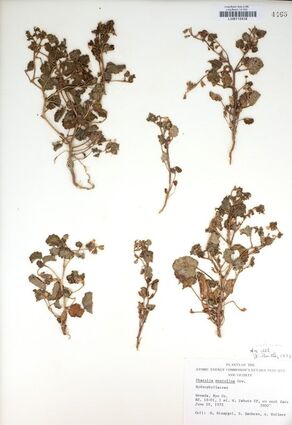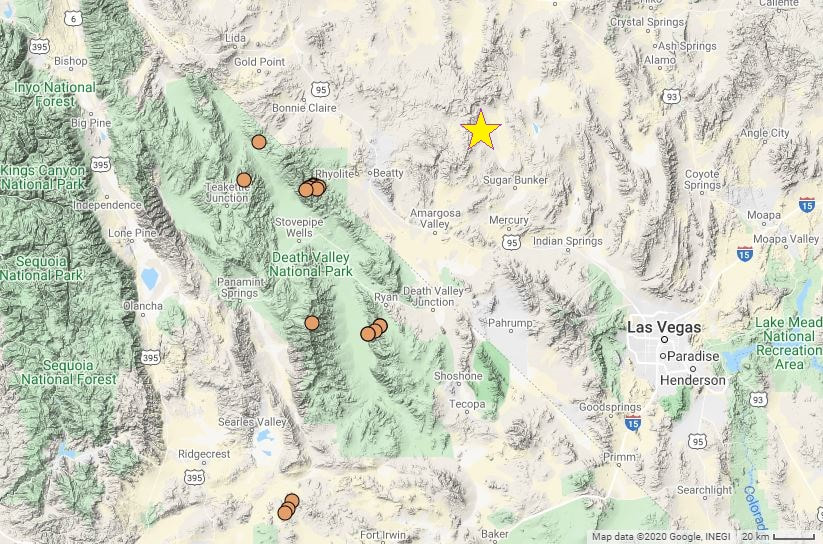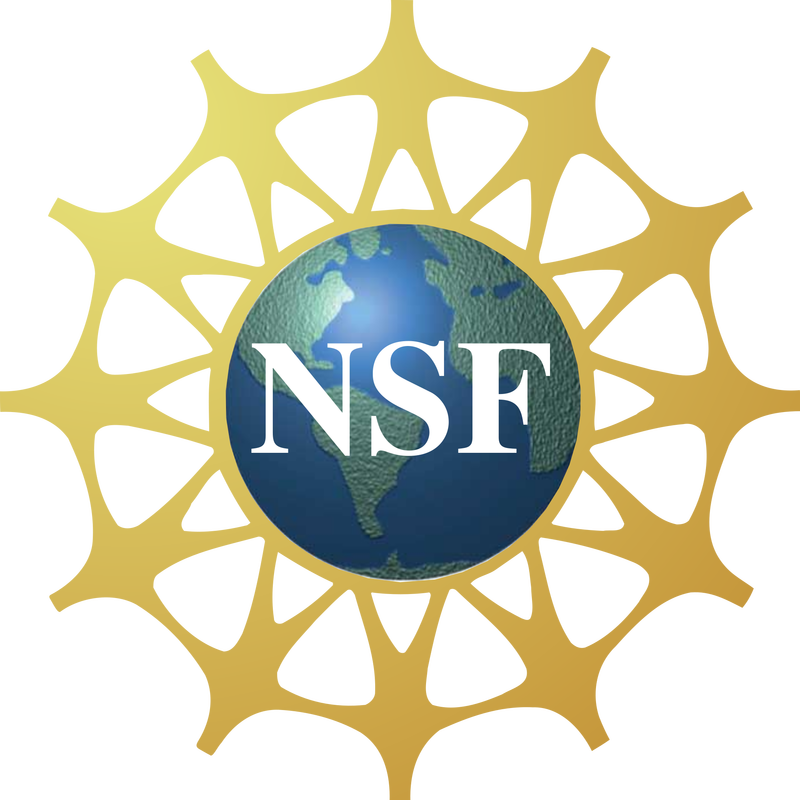
Notes from Nature volunteers may not have known it at the time, but while they transcribed the label of this small and unassuming plant specimen, they were documenting the occurrence of a rare, threatened species.
Phacelia mustelina, comically called "weasel phacelia" or more elegantly "Death Valley round-leaved phacelia" is an uncommon annual herb of eastern California and western Nevada. The California Native Plant Society ranks this species as rare, threatened, and endangered in California and elsewhere, and indeed, in our database (CCH2.org), only 39 herbarium specimens exist from the past 100+ years.
This newly rediscovered specimen tells us an interesting story about this unique species. Originating from 1972 in Nye county, Nevada, this specimen was collected as part of a botanical inventory of the Nevada Test Site, an outdoor laboratory for nuclear testing that was established by the U.S. Atomic Energy Commission soon after World War II. Many specimens from this inventory ended up at the CSU Long Beach Herbarium, where they remained undigitized and thus largely unknown for several decades. With recent digitization efforts from the California Phenology Network, however, these specimens were imaged and included in one of our latest expeditions on Notes from Nature.
By transcribing information from specimen labels, citizen scientists helped us rediscover this historical occurrence of the rare Phacelia mustelina. These data are critical for assessing the conservation status of this species; if we know where this plant grew historically, we can better know where it might likely still exist. Once we know where and how abundantly this species exists, we can determine whether it needs protection and how to effectively do so.
If you ever wonder whether your help matters, remember the weasel phacelia. Bringing "dark data" to light can us help protect biodiversity on Earth.
Phacelia mustelina, comically called "weasel phacelia" or more elegantly "Death Valley round-leaved phacelia" is an uncommon annual herb of eastern California and western Nevada. The California Native Plant Society ranks this species as rare, threatened, and endangered in California and elsewhere, and indeed, in our database (CCH2.org), only 39 herbarium specimens exist from the past 100+ years.
This newly rediscovered specimen tells us an interesting story about this unique species. Originating from 1972 in Nye county, Nevada, this specimen was collected as part of a botanical inventory of the Nevada Test Site, an outdoor laboratory for nuclear testing that was established by the U.S. Atomic Energy Commission soon after World War II. Many specimens from this inventory ended up at the CSU Long Beach Herbarium, where they remained undigitized and thus largely unknown for several decades. With recent digitization efforts from the California Phenology Network, however, these specimens were imaged and included in one of our latest expeditions on Notes from Nature.
By transcribing information from specimen labels, citizen scientists helped us rediscover this historical occurrence of the rare Phacelia mustelina. These data are critical for assessing the conservation status of this species; if we know where this plant grew historically, we can better know where it might likely still exist. Once we know where and how abundantly this species exists, we can determine whether it needs protection and how to effectively do so.
If you ever wonder whether your help matters, remember the weasel phacelia. Bringing "dark data" to light can us help protect biodiversity on Earth.
Note: Although the image above doesn't show it, documentation of this species in Nevada does exist in other data portals, so this collection at the CSU Long Beach herbarium does not necessarily represent a range extension of the species.
References:
- Atomic Heritage Foundation. 2019. Nevada Test Site. https://www.atomicheritage.org/location/nevada-test-site, accessed on April 17, 2020.
- Consortium of California Herbaria, CCH2 Portal. 2020. http://cch2.org/portal/index.php. Accessed on April 17.
- Genevieve K. Walden, Robert Patterson, Laura M. Garrison & Debra R. Hansen. 2013. Phacelia mustelina, in Jepson Flora Project (eds.) Jepson eFlora, Revision 1, https://ucjeps.berkeley.edu//eflora/eflora_display.php?tid=37523, accessed on April 17, 2020.

